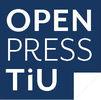Save the dates: 17-19 June 2026 – TILTing perspectives 2026:
TILTing Perspectives Conference 2026 “Between Values and Innovation: Tech Governance in a Multicentric World”. Many of our readers and contributors would be interested in submitting work/attending the TILTing conferences organised by our host institute, TILT.
Read more about Save the dates: 17-19 June 2026 – TILTing perspectives 2026:

